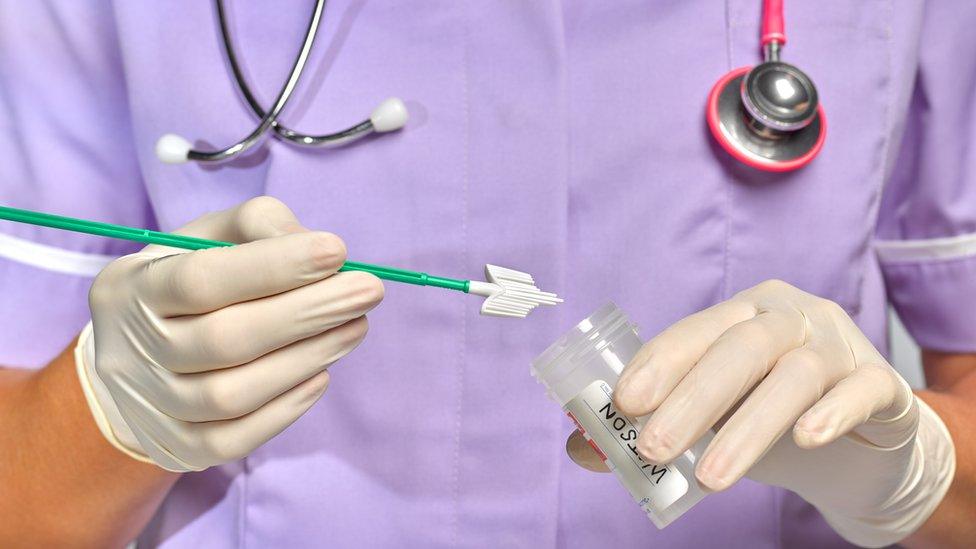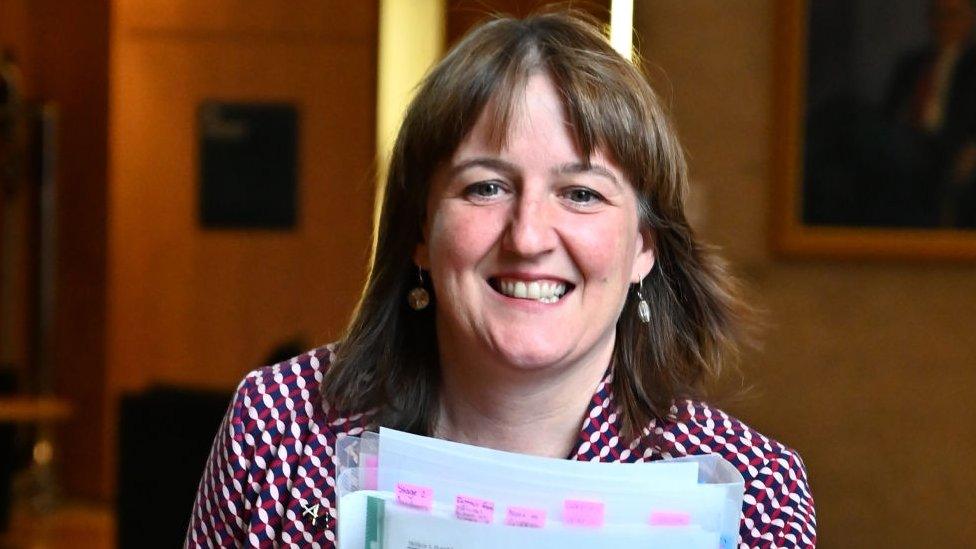Two more deaths linked to cancer screening error
- Published

A further two women died of cervical cancer after being wrongly excluded from Scotland's screening programme, it has emerged.
The Scottish government said it was strongly suspected that one developed cancer as a result of her exclusion.
In the other case, incorrect exclusion was said to be among several factors that appeared to have contributed to a diagnosis of cervical cancer.
They are in addition to the death of a third woman that was announced in June.
The government said nearly 200,000 women who were excluded from the cervical cancer screening programme are now to have their records checked to ensure their exclusions were correct.
It admitted in June - on the afternoon that Holyrood went into summer recess - that about 430 women who had partial hysterectomies were wrongly told they did need to be screened, a "small number" of whom went on to develop cervical cancer.
The issue came to light during a routine audit of cervical cancer data at an unnamed Scottish health board.
Cancer charities said at the time there had been "clear failings", and called for urgent action to ensure it never happened again.
Most hysterectomies involve the removal of the cervix and then there is no further need for cervical cancer screening.
However, sometimes a hysterectomy is performed where part or all of the cervix remains and those women should remain on the screening programme if they are within the eligible age range.

Ms Todd apologised to all of those who had been affected by the error
Women's Health Minister Maree Todd told the Scottish Parliament on Wednesday that it had since become clear that a further 170 women were also wrongly excluded from screening, bringing the total to about 600.
They were not included in the original total because their partial hysterectomies were carried out before 1997, when records were more difficult to access.
All of those know to have been affected have now been contacted and either been reinstated to the screening programme, or offered an appointment with their GP or gynaecology unit.
Ms Todd initially told MSPs that only 2,000 records were to be reviewed, before later saying it was actually 200,000 after being contacted by staff.
She also said the government expected the "overwhelming majority" of these exclusions to have been correct.
But she said it was likely that more people will be discovered to have been wrongly excluded.
This wider review is likely to take at least 12 months to complete, based on the complexity and numbers involved.
'Very complex case'
Ms Todd said clinical teams had also completed a review of the cancer registry to find out if there were other cases where an exclusion may have contributed to a diagnosis of cervical cancer.
She said there was a "high level of clinical suspicion" that one woman may have developed cervical cancer as a result of being incorrectly excluded from screening, although it was not possible to say for certain.
There was also a "very complex case" where several factors may have contributed to a diagnosis of cervical cancer, including an incorrect exclusion from cervical screening.
In both cases, the women have since died.
Ms Todd offered her "sincere apologies to all those affected by these errors".
She added: "In particular, I extend heartfelt apologies to the women who were excluded from the programme who went on to develop cancer, and to their families. I also recognise the anxiety this will have caused to all those wrongly excluded from screening."
Ms Todd said that about 95% of hysterectomies carried out in Scotland are total, and women who have had total hysterectomies do not need to be screened.
And she said the risk of cervical cancer in general is fewer than 1 in every 100 women in Scotland across their lifetime.
Scottish Labour health spokeswoman Jackie Baillie welcomed the review of the 200,000 cases, but said the government had "serious questions to answer over why this scandal went uncovered despite concerns being flagged repeatedly over a number of years".
She added: "Time and time again, this government allowed this scandal to go uncovered and as a result lives have been put on the line.
"The government must take responsibility for their continued oversight on this matter and act to put this right as soon as possible."
Conservative health spokeswoman Annie Wells said the Scottish government had "left many women in the dark for too long before initially announcing the errors that had been made".
She said the review should be extended to a full public inquiry, adding: "The SNP government have been slow to act since this scandal came to light and that must change.
"A number of critical questions remain unanswered before anxious women can be satisfied ministers are fully on top of this situation."